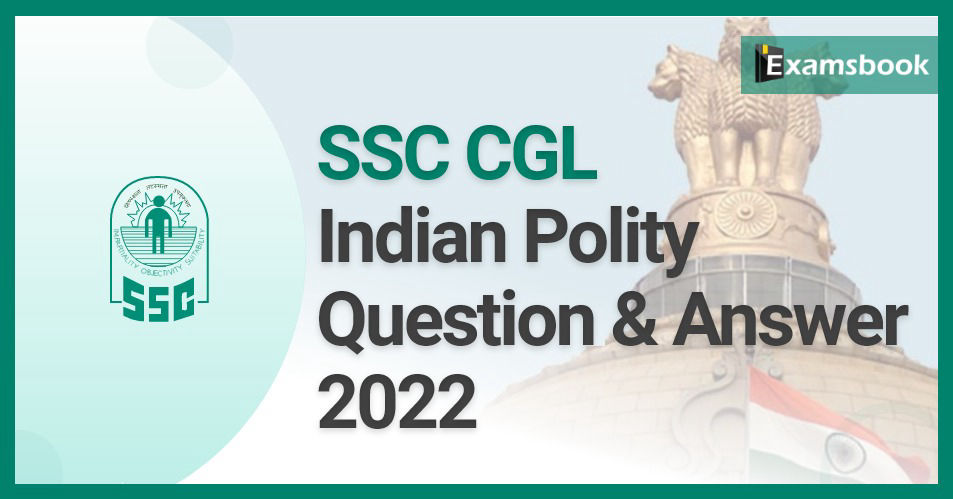SSC CGL 2022 Indian Polity Important Question and Answer

Rajya Sabha member has tenure of ______ years.
(A) 8
(B) 6
(C) 4
(D) 2
Correct Answer : B
Goods and Services Tax (GST) was enacted by Parliament vide Constitutional Amendment Act, 2016 on 8th September 2016.
(A) 101st
(B) 105th
(C) 103rd
(D) 107th
Correct Answer : A
Explanation :
1. The 101st Constitutional Amendment of 2016 is the most far-reaching change from a fiscal perspective since the formation of the first Finance Commission in 1951, providing concurrent powers to the Center and the states in the matter of indirect taxation.
2. This amendment introduced a national Goods and Services Tax (GST) in India from 1 July 2017.
3. GST is based on a concurrent system of indirect taxes, where central and state GST is imposed on every transaction.
Which of the following who attended the three round table conference?
(A) Mahatma Gandhi
(B) B. R Ambedkar
(C) J L Nehru
(D) J V Kripalani
Correct Answer : B
What is the tenure of the Comptroller and Auditor General of India?
(A) Five years
(B) Three years
(C) Six years
(D) Two years
Correct Answer : C
Explanation :
The Comptroller and Auditor General shall hold office for a term of six years from the date on which he assumes such office: Provided that where he attains the age of sixty-five years before the expiry of the said term of six years, he shall vacate such office on the date on which he attains the said age.
Which among the following article states that there should be no discrimination on grounds of caste, religion, race, sex, place of birth?
(A) Article 15
(B) Article 21
(C) Article 25
(D) Article 30
Correct Answer : A
Panchayati Raj belongs to___.
(A) Residual list
(B) Concurrent list
(C) State list
(D) Union list
Correct Answer : C
Explanation :
The correct answer is State List. Panchayati Raj is included in the State list. Panchayati Raj (Council of five officials) is the system of local self-government of villages in rural India as opposed to urban and suburban municipalities.
(A) 1956
(B) 1952
(C) 1954
(D) 1953
Correct Answer : D
Legally able to declare war or decide peace—
(A) President
(B) Parliament
(C) Council of Ministers
(D) Prime Minister
Correct Answer : A
By which amendment of the Indian Constitution is it clearly provided that the President of India is obliged to obey the advice of the Council of Ministers?
(A) 24 th
(B) 25 th
(C) 41 th
(D) 42 th
Correct Answer : D
In the Indian Constitution, which article is known as the soul of the Constitution?
(A) Article 33
(B) Article 32
(C) Article 42
(D) Article 17
Correct Answer : B



